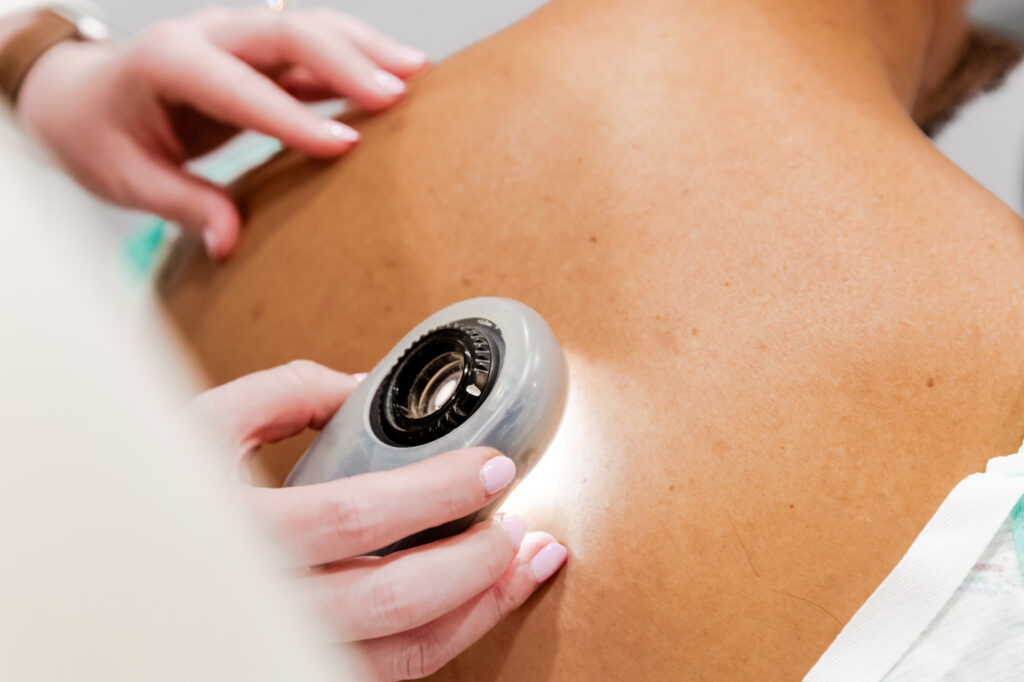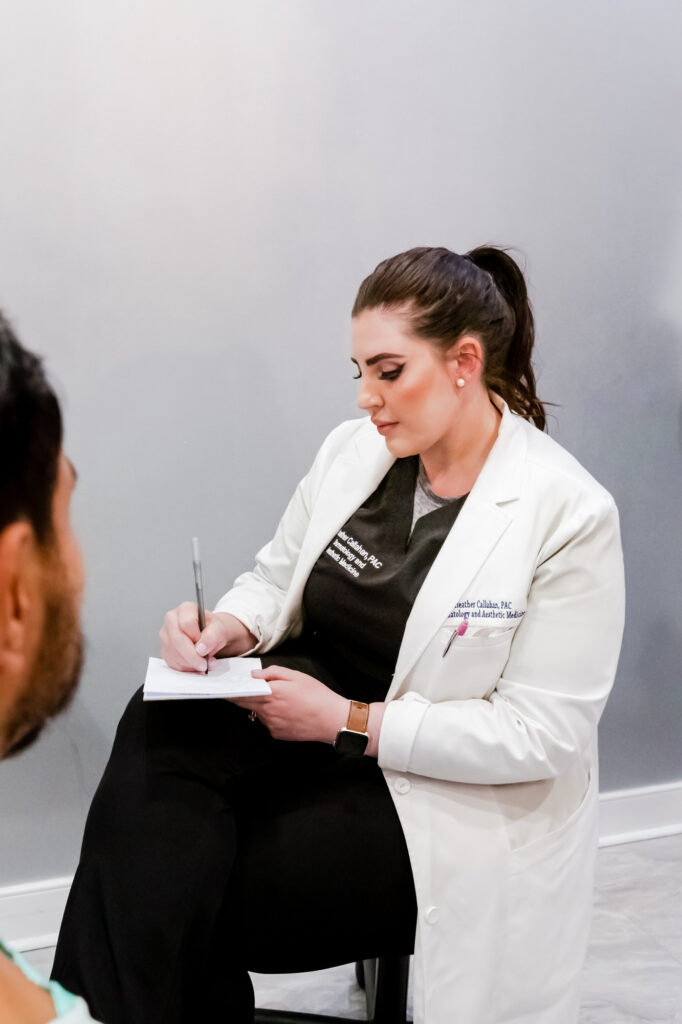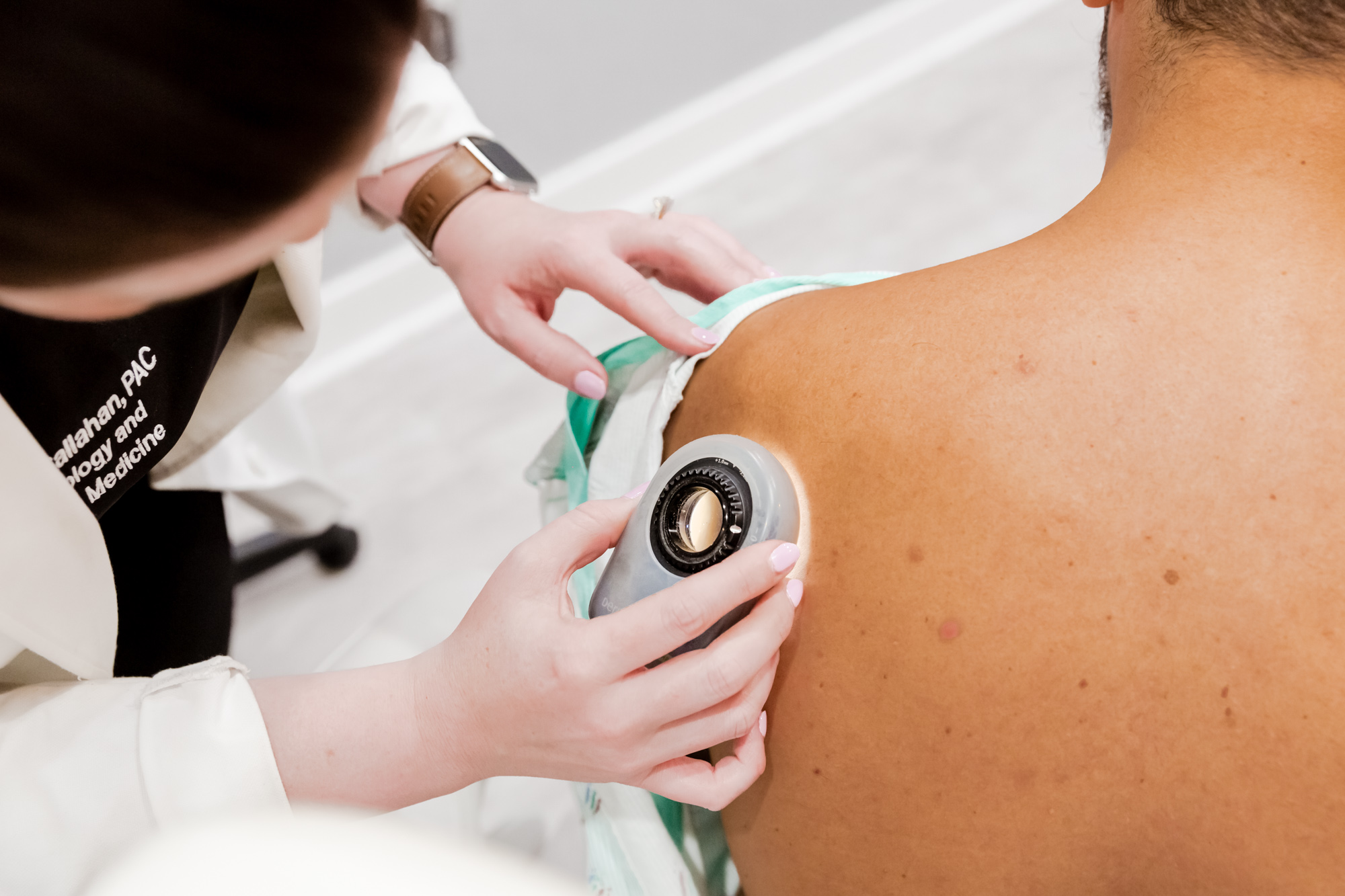Protect Your Skin, Protect Your Health
Skin cancer is one of the most common forms of cancer, but early detection through a full body skin exam can significantly improve treatment outcomes. At Dermestetics in Vienna, VA, we offer thorough skin evaluations to identify any signs of skin cancer or other skin conditions. Our goal is to help you maintain healthy skin and address concerns before they become serious.

Expert Providers
Our dermatology team at Dermestetics combines extensive expertise with advanced diagnostic techniques to perform comprehensive full body skin exams. Whether you are seeking routine screening or are concerned about a specific lesion, we provide personalized care to ensure your peace of mind and long-term health.


What’s great about our full body skin exams?
Learn More
Consultation Required?
Yes
Duration of Results
Varies by findings and follow-up
Sessions Needed
Routine screenings recommended annually
Downtime
None
What It Treats
Common Concerns Addressed During a Full Body Skin Exam:
Early signs of skin cancer
Atypical moles (dysplastic nevi)
Precancerous lesions (actinic keratosis)
Skin discoloration or irregularities
Changes in existing moles or new growths
Chronic sun damage
Understanding the Importance of Early Detection
1. Melanoma
- The most serious type of skin cancer often presents as a new mole or changes to an existing one
- Early detection increases survival rates significantly
2. Basal Cell Carcinoma
- The most common skin cancer often appears as a pearly bump or flat lesion
- Rarely spreads but requires treatment to prevent tissue damage
3. Squamous Cell Carcinoma
- Typically manifests as a scaly patch, red nodule, or sore that doesn’t heal
- Can spread if left untreated, emphasizing the need for early intervention
4. Actinic Keratosis
- Precancerous spots caused by sun damage
- Identifying and treating these early can prevent progression to squamous cell carcinoma
Symptoms to Watch For
- Asymmetry: One half of a mole does not match the other.
- Border irregularity: Edges appear ragged or blurred.
- Color variation: Multiple shades of brown, black, or other colors.
- Diameter: Lesions larger than 6 millimeters (about the size of a pencil eraser).
- Evolving: Changes in size, shape, or symptoms like itching or bleeding.

How it Works
How it Works
Our Comprehensive Approach to Full Body Skin Exams in Vienna
During your full body skin exam at Dermestetics, we use a systematic approach to ensure a thorough evaluation:
Step 1: Medical History Review
We discuss your medical history, including any personal or family history of skin cancer, past sun exposure, and current skin concerns.
Step 2: Full Skin Examination
You will wear a medical gown while our expert examines your skin from head to toe. This includes areas often overlooked, such as the scalp, soles of the feet, and between fingers and toes.
Step 3: Use of Advanced Tools
If necessary, we use dermatoscopes—handheld devices that magnify and illuminate the skin—to evaluate suspicious moles or lesions.
Step 4: Documentation
Photographs may be taken to monitor specific moles or lesions over time, ensuring accurate tracking of changes.
Step 5: Discussion and Recommendations
We explain our findings and provide a detailed plan for the next steps, which may include biopsies, follow-ups, or preventive measures.
How is my treatment plan developed?
Our team creates a care plan based on your unique needs, addressing any areas of concern while recommending preventive steps to maintain skin health. Routine follow-ups may be suggested for individuals at higher risk.
How long will I need treatment?
Most full body skin exams are completed within 20-30 minutes. If treatment is necessary, additional appointments will be scheduled promptly.
Are you a good candidate for a full body skin exam?
You should consider regular exams if you:
- Had skin precancerous lesions or cancer in the past
- Notice changes in moles, freckles, or other skin features
- Experience frequent sun exposure or use tanning beds
- Have fair skin, light hair, or a family history of skin cancer
How do I monitor your progress?
We provide guidance on self-monitoring using the “ABCDE” method and recommend annual exams to track any changes over time.
Prevention Tips for Healthy Skin
- Use face and body sunscreen daily, even on cloudy days.
- Avoid tanning beds and prolonged sun exposure.
- Perform monthly self-examinations to spot new or changing moles.
- Wear hats, sunglasses, or any protective clothing when outdoors.
- Schedule regular full body skin exams with a dermatologist.
Get Started
Ready to prioritize your skin health?

















